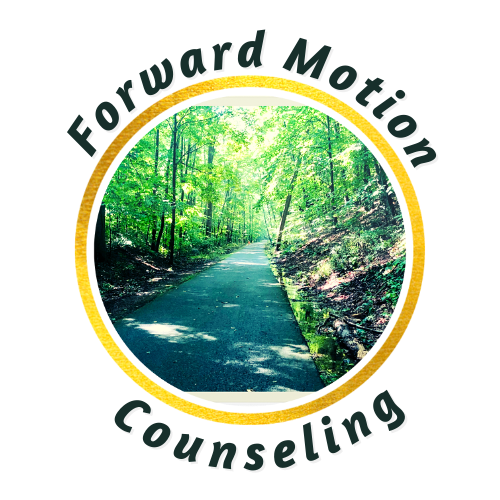Inclusive Adventures: Making Outdoor Activities Accessible to Everyone
Historically, outdoor spaces have been claimed by cisgender white people who have created barriers for the Black, Indigenous, and people of color (BIPOC) community through political, economic, and social forces; however, we would be wrong to think that there is a lack of wisdom and intuition within these communities when it comes to surviving and thriving in the outdoors or that the BIPOC community does not currently belong in the outdoors. There are stories missing from my education: the ones that celebrate and honor individuals in the BIPOC community who literally trailblazed through the nation. As a white female who benefits from living on this land, I want to support businesses and leaders who are working to bring inclusivity to the outdoors and I deeply want to understand the true history of our land and the people who have always belonged but were purposefully kept out.
After reading Wild Girls, written by Tiya Miles, I’ve been reflecting on her stories of women throughout history who have shaped where we are today because of their relationship with the outdoors, many of whom are not well understood. Her narrative of Harriet Tubman’s journey to freedom through the woods stands out to me; how, among many other skills, she learned to follow the North Star to the northern states, forage for food, to utilize the wilderness as a guide despite having a head injury. Ms. Tubman’s incredible skill set allowed her to save so many lives and I can’t say that I know many people who could travel the wilderness today like she did, as many times as she did, and make it out alive. In reference to the historical female figures in her book, Tiya Miles writes, “Together, the girls featured here, some famous and others who should be better known, make up a newly conjoined cast of historical actors who navigated their social world differently because of their experience in the outdoor world.” Most of us know about Mark Twain’s Huckleberry Finn, a white boy who flees from abuse and embarks on a journey with a runaway slave down the Mississippi River, but what about the girls who escaped danger, dreamed, trained, healed, taught, and shaped generations after them? Ms. Tubman was a woodswoman. Her fortitude in the woods is the same that other girls and women showed when they took to the streets for voting rights, assembled outdoors to join picket lines, fought to run in marathons, and marched for civil rights that are still threatened today.
Being outdoors is a part of our political life and it is also a part of being human. We need the outdoors if we want to live well. Studies have illustrated that outdoor spaces, particularly green spaces and spaces with water, provide mental health benefits. One 2019 study recommended that healthcare providers prescribe time in green spaces to help mitigate stress, anxiety, and depression, and that city planning should incorporate accessible green spaces in urban areas. It is an atrocity that the BIPOC community has been strategically removed from having access to green spaces, harmed through environmental racism, and then subsequently denied access to valuable land as it was claimed by a certain gender, race, age, and/or people with only certain abilities or body shapes/sizes. We still have a long way to go when it comes to equity in the outdoors, access to green spaces, affordable gear, and clothing/gear for all body types, but I have researched a list of organizations that seem to be dedicated to this purpose.
Whether you are trying to support the businesses working toward a more inclusive and accessible world, want to share this information with a friend or family, or could benefit from these resources and companies, I hope you can enjoy this list and feel empowered to get outdoors. You belong in nature if that is where you want to be!
Local/NYC Resources:
Outdoor Afro: Offers meetups and teaches leadership skills for adults and children through various outdoor experiences.
Hoods to Woods: Helps teens in Brooklyn and the tri-state area with snowboarding and mentoring.
Unlikely Hikers: A diverse, anti-racist, body-liberating outdoor community featuring the underrepresented outdoorsperson.
Gear and Brands:
Outdoor Element: Native American owned. Adventure and survival gear.
Alpine Parrot: Latina owned and operated. Plus size gear.
Tough Cutie: Black woman owned. Hiking socks for women.
Itacate: Latina owned. Latin Backpacking Food (vegetarian and vegan options).
Allmansright: Ultralight gear made in the Bronx.
Pescavore: Provides on the go seafood that is sustainable and low impact on the environment.
Kinsa Active: Plus size outdoor clothing for hiking, fishing, and snow sports.
Wondery Outdoors: Plus size outdoor clothing focused on style and comfort up to 6XL.
Other Leaders in Outdoor Adventure who are Empowering Others:
Nicole Snell at Girls Fight Back: Empowering girls and women to learn self-defense and skills for solo travel and engagement in the outdoors.
Kanoa Greene at NAKOA Adventure: Adventures for plus size folx.
Lestarya Tuadi Molloy, CEO & Founder of Fridie Outdoors: Teaches and empowers all people the camping skills they need to safely enjoy camping.
Alison Mariella Désir: Author of Running While Black, founder of Harlem Run, co-founder of Women of Color Take the Lead Retreat, and leader in many other projects focused on diversity, equity, and inclusion.
Andrea DiMaio at Ample Movement: Body inclusive yoga instructor, hiker, and outdoor adventurer.
Alina Drufovka at Abstract Hikes: Latina Jewish Painter and thru-hiker. Sells apparel, prints, and more.
Parker McMullen Bushman: Black Environmentalist, outdoor enthusiast, & social justice activist. Co-founder of Inclusive Guide.
